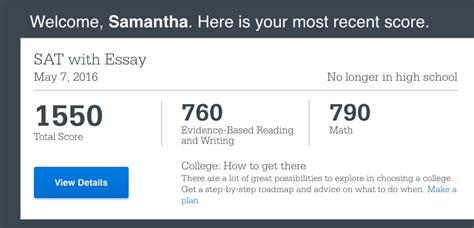
Introduction:
The SAT, a standardized test widely used for college admissions, has been a source of stress and anxiety for countless students. However, recent research and expert opinions suggest that the reported test scores may not accurately reflect a student’s true potential. This article will delve into why you should not solely rely on the SAT scores and explore alternative ways to gauge your abilities.
The Limitations of SAT Scores
1. Cultural Bias and Lack of Inclusivity:
Studies have revealed that SAT scores often favor students from privileged backgrounds. The test’s content and format may inadvertently advantage certain groups, leading to inequitable outcomes.
2. Overemphasis on Test-Taking Skills:
SAT scores primarily measure a student’s ability to take a standardized test, not their overall academic knowledge or future success in college. The test focuses on narrow and specific skills, which may not translate well to real-world scenarios.
3. Anxiety and Test-Day Performance:
Test anxiety can significantly impact a student’s performance on the SAT. Stress levels and external factors can hinder their ability to perform optimally, leading to scores that do not reflect their true abilities.
Alternative Measures of Success
1. High School GPA:
A student’s high school GPA is a more comprehensive indicator of their academic performance over an extended period. It reflects their consistency and effort throughout their high school career.
2. Extracurricular Activities and Leadership:
Participation in extracurricular activities, clubs, and volunteer work demonstrates a student’s initiative, skills, and commitment. Colleges value students who are well-rounded and engaged in the community.
3. Personal Statement and Letters of Recommendation:
A well-written personal statement and insightful letters of recommendation from teachers and mentors provide a deeper understanding of a student’s character, motivation, and potential.
Tips and Tricks
1. Focus on Preparation and Learning:
Instead of solely aiming for high scores, concentrate on the learning process. Seek help from tutors or online resources to enhance your understanding of concepts.
2. Take Practice Tests Under Realistic Conditions:
Simulate the actual testing environment by taking practice tests under timed conditions. This will help you manage your time effectively and reduce test anxiety.
3. Seek Support and Manage Stress:
Connect with friends, family, or a counselor to discuss your concerns and seek support. Engage in stress-reducing activities like exercise or meditation to maintain mental well-being.
Common Mistakes to Avoid
1. Overstressing About Scores:
Remember that SAT scores are just one component of your college application. Don’t let them define your worth or limit your aspirations.
2. Ignoring Alternative Metrics:
College admissions officers consider a holistic view of your application. Highlight your strengths and accomplishments beyond the SAT scores.
3. Paying for Expensive Test Prep Programs:
While test prep programs can provide some benefits, they may not significantly improve your scores. Focus on effective self-study strategies and seek support from your teachers instead.
Conclusion
The SAT scores reported after testing do not fully capture your true abilities. By considering alternative measures of success and adopting a growth mindset, you can navigate the college admissions process with confidence. Remember that your worthiness and potential are not determined by a single test score.
